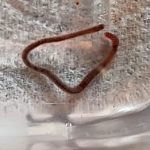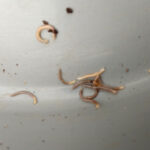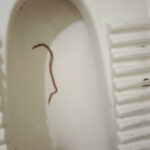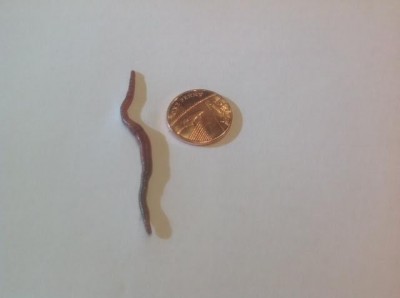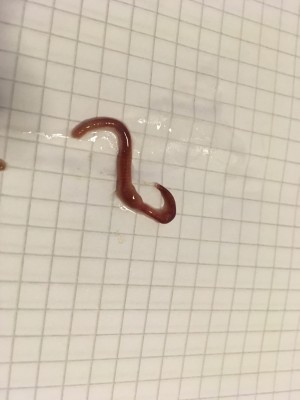
“I find hundreds of earthworms in my pool after it has rained”, writes this reader in their submission, which does not include any pictures or videos. “It looks like a mass suicide? Now, I read they can survive for up to two weeks under water. Is the chlorine in the pool toxic for them, and how can I help them get back into the ground?” To start with, whether or not earthworms can survive underwater for two weeks seems to be a debatable topic. Some sources say they can survive for weeks underwater, while others say they can survive for hours. Our take is that this would be entirely dependent on the species. There are species of earthworms that belong to a group of worms called ‘bloodworms’. They are typically red in color, which they get from the excess production of hemoglobin, which does indeed allow them to survive in low oxygen conditions, such as underwater, for long periods of time. That said, not all species of earthworms are bloodworms, and we doubt the earthworms our reader found are bloodworms.
The reason we think so is because the earthworms were found after rain. Earthworms come to the surface during heavy rain because their underground burrows fill with water, forcing them to flee to the surface so that they can breathe. That shows us that these earthworms are definitely not the type that would be able to survive in a pool. But that is not to say that their behavior is an example of, in our reader’s words, “mass suicide”; earthworms do not kill themselves intentionally. What we think happened is that the rain brought the earthworms to the surface of the lawn, as it typically does, and then washed them into the pool. This process is actually how fish in lakes get a taste for earthworms in the first place.

Now, with regard to our reader’s last questions: Firstly, chlorine is definitely toxic to earthworms. Of course, that doesn’t mean that our reader should stop using chlorine in their pool. Perhaps they should get a cover for their pool, so as to prevent more worms from ending up in it. Secondly, the easiest way our reader can help the earthworms “get back into the ground” is by fishing them out of the water and putting them on the grass (preferably not on a slope that leads to the pool).
To conclude, we do not think that the earthworms our reader found would be able to survive in their pool for two weeks. If the worms were alive when discovered, we hope that our reader rescued them immediately. We hope this helps, and we wish our reader the very best!
All About Worms is always free, always reader-supported. Your tips via CashApp, Venmo, or Paypal are appreciated! Receipts will come from ISIPP Publishing.
You might also find these guys interesting!




